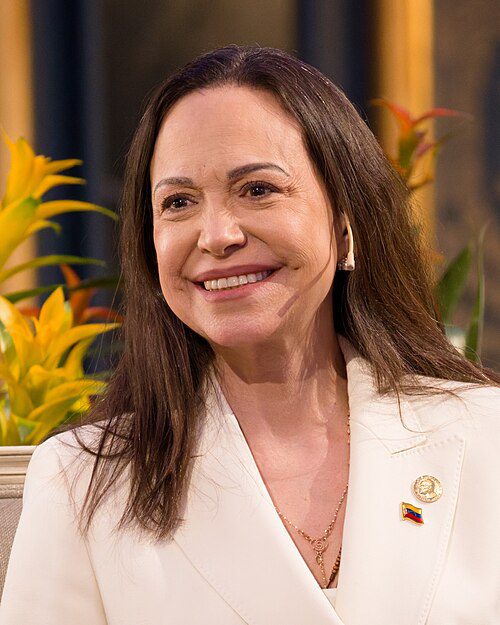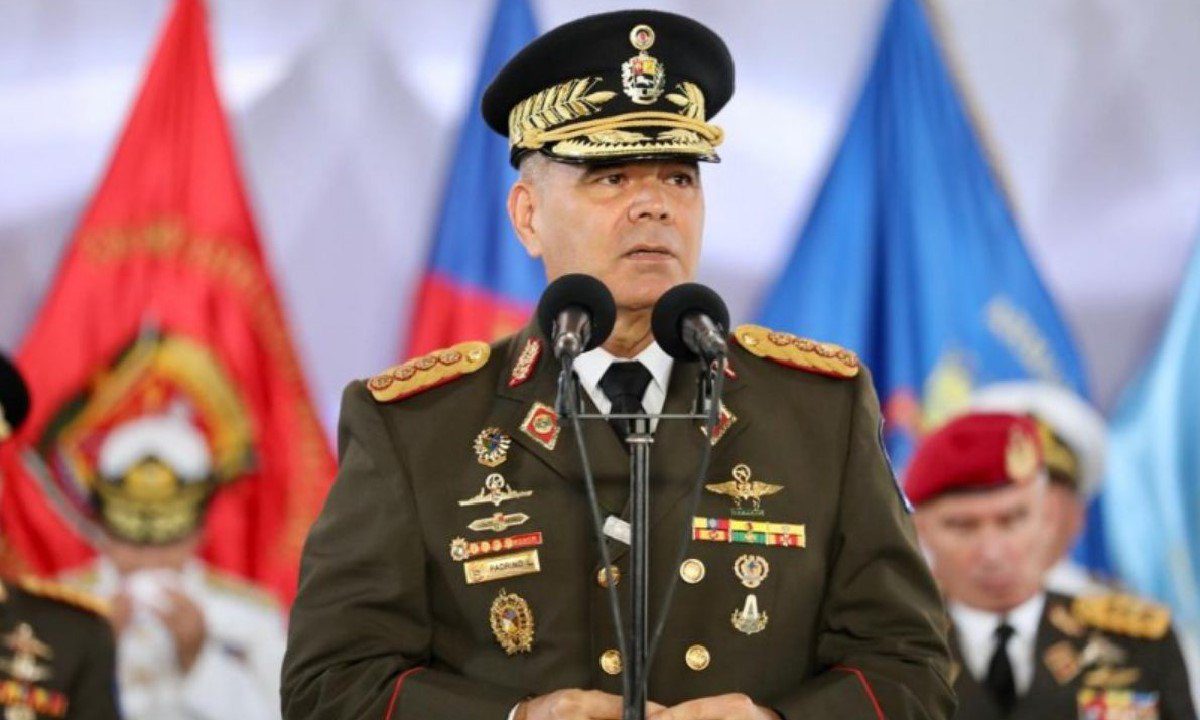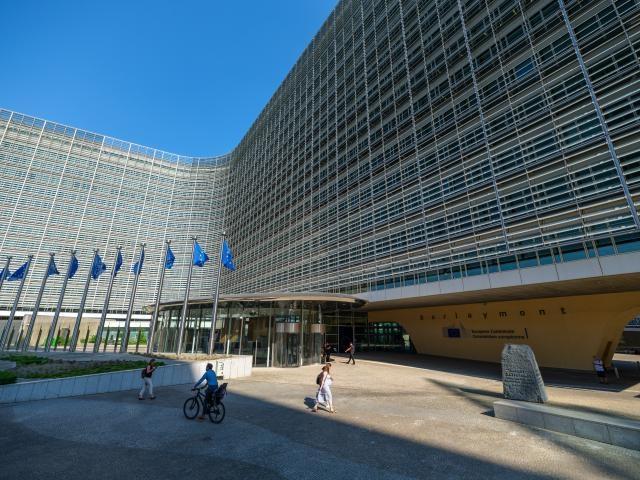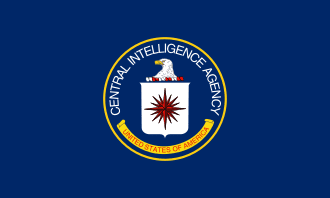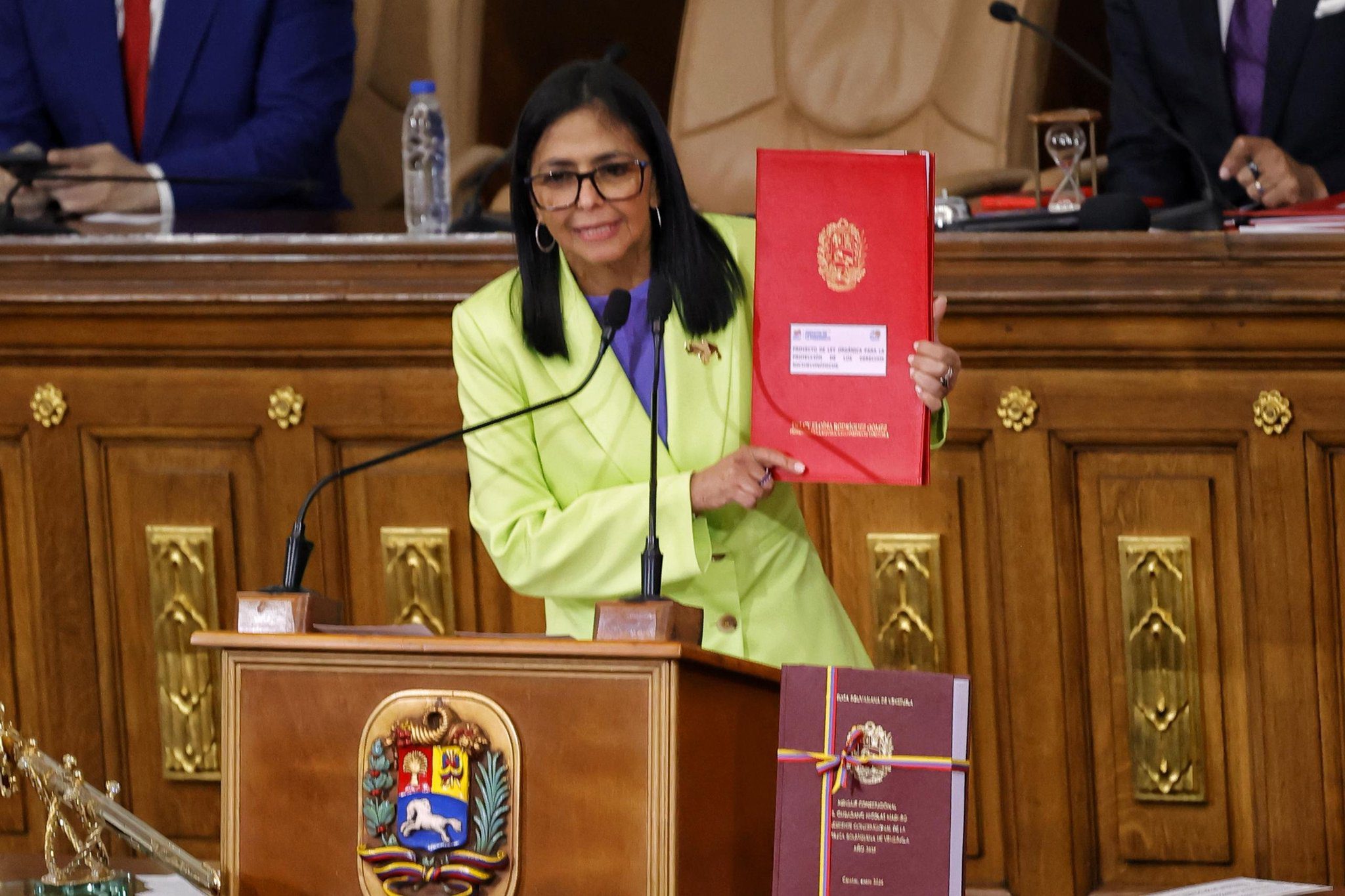Despite visible abstention, the voting hours were extended until 8:00 PM by order of the National Electoral Council (CNE). Photo: Luis Alejandro Ruíz
Guacamaya, July 27, 2025. According to the first official bulletin from the National Electoral Council, shared by its president Elvis Amoroso, a total of 6,273,531 voters participated in the municipal elections. Amoroso used the concept of “active voters” to indicate that participation reached 44%, but when considering participation over the total Electoral Registry (ER), the figure drops to 29%.
As of 11:28 PM, with 82.45% of total poll reports transmitted, definitive results were available for 304 mayoralties. Of these, the United Socialist Party of Venezuela (PSUV) had reportedly won at least 257 mayoralties, while the opposition maintained control of the municipalities of Baruta, Chacao, and El Hatillo, holding a provisional total of 47 mayoralties, pending the outcome of the remaining 31 municipalities.
However, minutes after the official announcement, President Nicolás Maduro, going beyond the National Electoral Council, declared a victory for his party in 285 of the 335 contested mayoralties. Journalist Eugenio Martínez pointed out that, pending an official update from the CNE, “this is not a historic result for the PSUV if compared with the official 2017 data, when they won 309 mayoralties.”
An atmosphere of skepticism settled once again on this day, in which mayors and councilors for the country’s 335 municipalities were to be chosen. The electoral day, which extended voting hours until 8:00 PM, was marked by low voter turnout at most polling centers and political tension in key municipalities.
The national participation estimate, according to Eugenio Martínez, was projected to be slightly lower than that recorded in the regional and legislative elections of May 25, although the official announcement showed a slight increase. On his X account, Martínez highlighted that paradoxically, the places where participation showed signs of improvement were in the municipalities most identified with the opposition.
Participation Increased in Opposition Municipalities
According to unofficial reports, municipalities such as Maneiro (Nueva Esparta), Diego Bautista Urbaneja (Lechería, Anzoátegui), Los Salías and Chacao (Miranda) exhibited higher participation than in the May 25 elections. Of these, the opposition would hold on to Chacao, Diego Bautista Urbaneja and Maneiro, as well as San Diego (Carabobo), according to DatoWorld’s account on X.
Chacao was precisely the key in Greater Caracas. According to political scientist Oliver López Cano, toward the end of the afternoon it seemed that only that municipality could resist as an opposition stronghold in the capital, while El Hatillo, Baruta, and Zamora (Miranda) presented a discouraging outlook. Other analysts agreed that the opposition could lose the rest of the city.
In this vein, Eugenio Martínez pointed out that participation in Chacao could favor the continuation of current mayor Gustavo Duque. “If the estimated 23% participation at Andrés Bello High School (Chacao) is correct, Duque’s continuity should not be threatened,” Martínez stated. He also affirmed that the cases of El Hatillo and Baruta (Miranda) were “less clear.”
Visible Abstention in Capital Polling Centers
Guacamaya conducted a tour of some polling centers in the capital, where at various times low voter turnout was confirmed. Images from centers such as the José de San Martín Industrial Technical School (Libertador municipality), San Agustín School in El Paraíso (Libertador municipality), and Metropolitana University (Sucre municipality) reflected a day lacking enthusiasm.
Despite this, at 5:49 PM, CNE President Elvis Amoroso announced: “Given that there are still many voters in line at different polling centers, we have decided to extend voting until 8 PM.” In his message, he emphasized the desire to “guarantee the right to vote of all citizens” and highlighted the contribution of young people during the day.
Analyst Félix Seijas, director of the Delphos polling company, pointed out that abstention was evident. “No one could expect visible lines today. This wouldn’t happen even if the same percentage as in 2021 came out to vote. Long lines only exist at events where enthusiasm is such that most people concentrate their arrival during certain hours,” he said via X.
The low participation environment could lead the National Electoral Council (CNE) to once again use the term “active voters” to mask the abstention figures, as actually occurred. Martínez noted this, reminding that the community youth projects consultation was also held on Sunday, whose development “was less successful than announced by the CNE.”
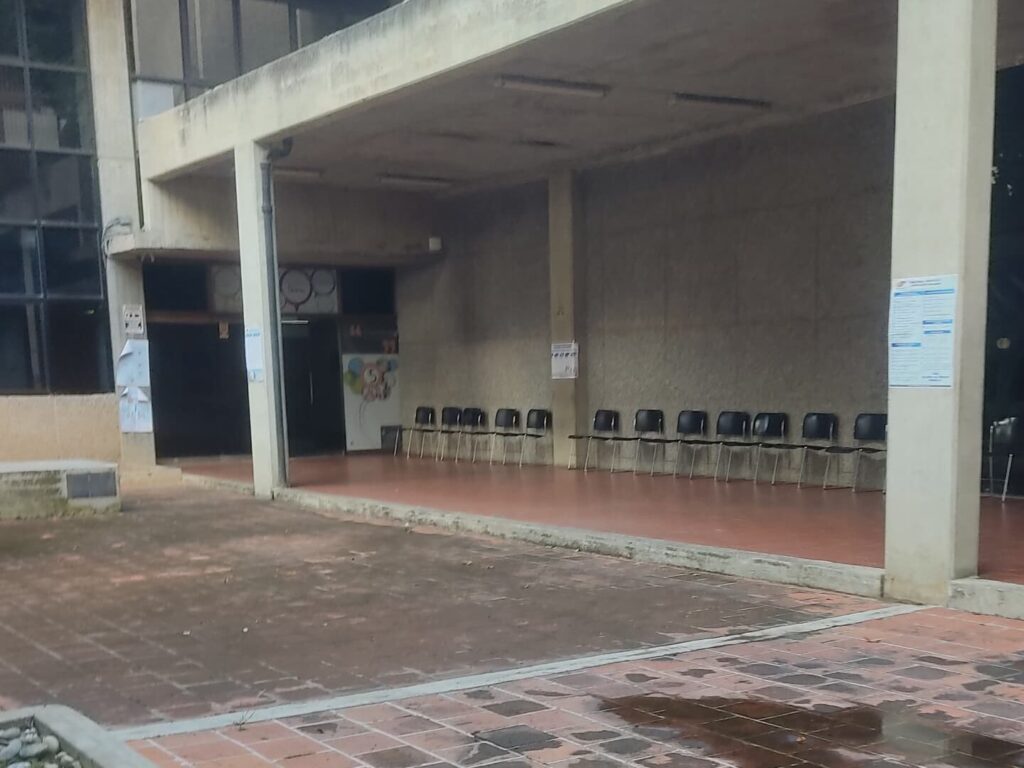
Polling Center at Metropolitana University (Sucre municipality, Miranda), with over 8,000 voters, around 5:30 PM, shortly before the CNE extended voting hours by two more hours: Photo: Sleither Fernández
Official Narrative: Efficiency, Peace, and Impending Victory
Officials from the ruling party described the day as calm, peaceful, and efficient. The first vice president of the United Socialist Party of Venezuela (PSUV), Diosdado Cabello, assured: “Practice has led us to a process that is very fast and efficient throughout the country.” President Nicolás Maduro, meanwhile, described the day as a “festival of peace and direct democracy.”
Other government voices joined this narrative in support of the electoral process. Jorge Rodríguez, chavismo’s campaign chief and current president of the National Assembly, called abstention a “ghost,” arguing that voter participation in Venezuela is envied by some countries.
Later at night, Rodríguez (9:13 PM) declared that “there is a possibility that we are witnessing the greatest victory the Bolivarian Revolution has had in municipal elections,” although this did not ultimately materialize. Padrino López highlighted the role of the Armed Forces in guaranteeing peace and citizen accompaniment during the process.
Opposition Dilemma: Calls to Vote and Criticism of the Process
Voices from the opposition also made themselves heard. Henrique Capriles Radonski insisted that “abstention cannot be the path: we have lived it; it is nothingness, and that is why I am here today.” Meanwhile, Manuel Rosales, Bernabé Gutiérrez, as well as candidates Gustavo Duque (Chacao) and Jorge Barragán (Libertador), also urged citizens not to give up ground.
In contrast, María Corina Machado condemned the process by referring to the “loneliness and exposure” of the chavismo. The opposition leader recounted what happened on July 28 (presidential elections), May 25 (regional and legislative elections), and this July 27 (municipal elections), noting that the ruling party has been left alone and with little legitimacy.
Awaiting the update of official results, the coming hours will be crucial to measuring the extent of the overwhelming victory of the ruling party, as well as the future of historically opposition-led municipalities. For now, the day echoes abstention and the general feeling of distrust and disbelief in political processes.


